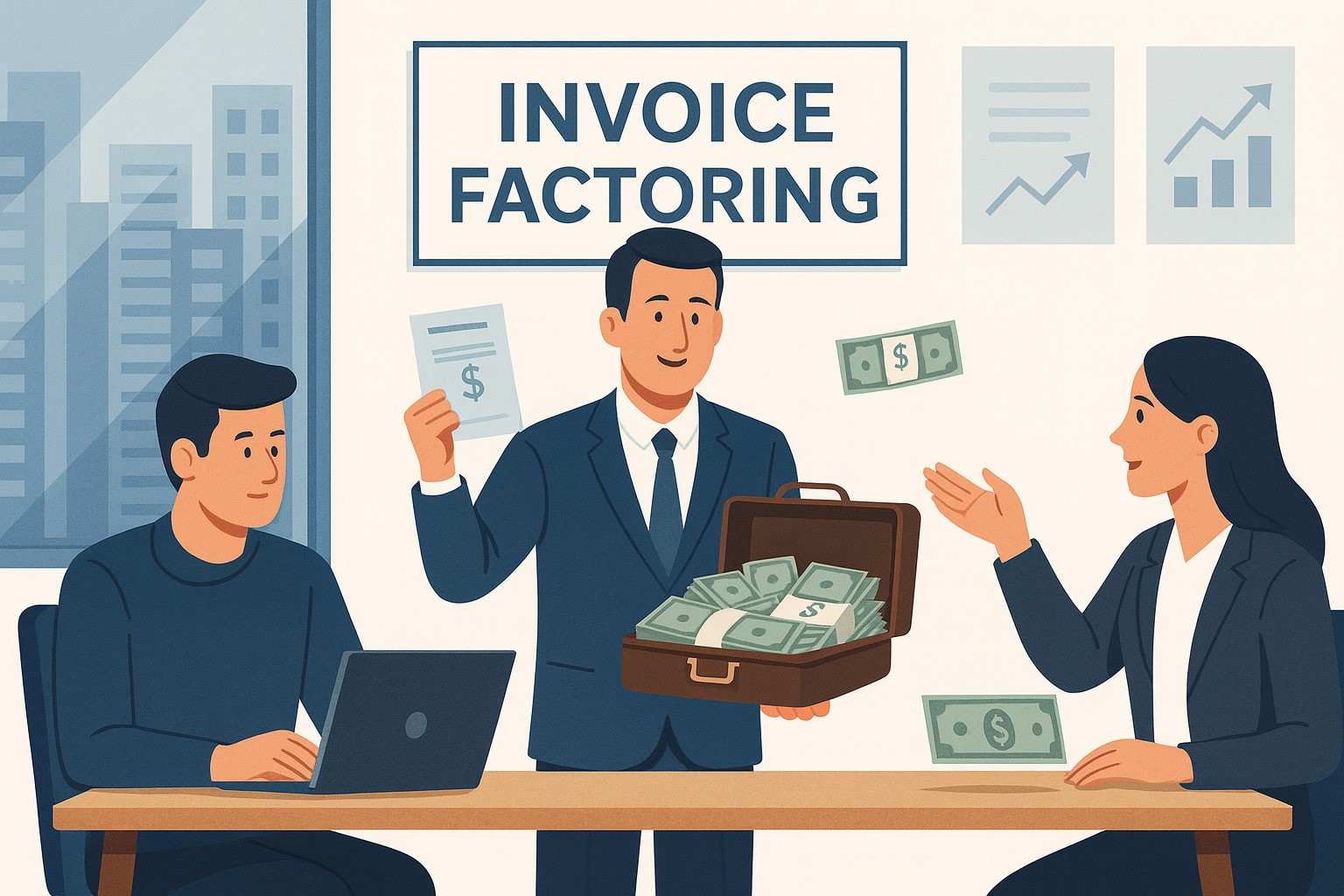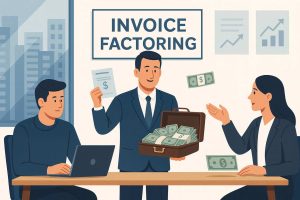For many entrepreneurs, running a business feels like balancing on a tightrope between opportunity and obligation. Sales may be strong, but if customers take weeks—or months—to settle their bills, cash flow quickly becomes a headache. This is where fast invoice factoring can shift the game, giving you quick access to money you’ve already earned without waiting for customers to pay.
A Different Way to Think About Your Invoices
Most business owners see unpaid invoices as something that’s locked away until the due date. But in reality, those invoices are assets—they represent money that’s owed to you. Fast invoice factoring treats them exactly that way. Instead of waiting for clients to pay, you sell those invoices to a factoring company. In return, they give you most of the cash right away, then handle the collection process themselves.
It’s not a loan, it’s a sale of receivables. That means no new debt on your balance sheet and no interest piling up over time.
Also Read
How Fast Invoice Factoring Usually Works
While each provider may have small differences in how they operate, the overall journey from invoice to cash is fairly straightforward:
-
Pick the Invoices You Want to Factor
You choose which outstanding invoices to sell, whether it’s a single large one or a batch. -
Submit Them to the Factoring Company
The factoring provider checks that the invoices are genuine and that your customers have a solid record of paying their bills. -
Get Your Advance
Once approved, you receive most of the value—often between 75% and 90%—within one or two business days. -
Let the Factor Collect Payment
They contact your customer and arrange for payment, freeing you from the follow-up process. -
Receive the Remaining Balance
When your client pays, the factor sends you the rest of the invoice value, minus their service fee.
Why Businesses Turn to This Solution
Quick Access to Cash When It Matters
In many industries, expenses don’t wait. You still need to cover payroll, order supplies, pay rent, and maintain operations even if clients are slow to settle their accounts. Fast factoring bridges that gap almost immediately.
No Collateral Needed
Unlike traditional loans, you don’t have to risk your property or other assets. The invoice itself is the collateral.
Easier Qualification
Since factoring companies focus on your customers’ credit history rather than your own, even newer businesses or those with past credit challenges can qualify.
Predictable Cash Flow
Knowing you can unlock funds on demand makes it easier to plan investments, manage expenses, and prepare for growth opportunities.
The Costs You Should Understand
Fast cash always comes with a price tag. Factoring fees are typically a percentage of the invoice total, and they can increase if customers take longer than expected to pay. While fees vary, they often range from 1% to 5% per month.
For example, if you factor a $20,000 invoice at a 3% monthly fee and your client pays in 60 days, you’ll pay around $1,200 for the service. Whether that’s worth it depends on how urgently you need the money and how you plan to use it.
Types of Fast Factoring Arrangements
-
Recourse Factoring – If the client doesn’t pay, you agree to buy the invoice back or replace it with another.
-
Non-Recourse Factoring – The factoring company takes on the risk of non-payment, though fees are higher.
-
Spot Factoring – You factor individual invoices instead of committing to a long-term arrangement.
Industries That Thrive With Factoring
Some sectors depend heavily on fast factoring because of long payment cycles:
-
Freight & Logistics – Trucking companies often face 30- to 60-day waits for payment, but must pay for fuel and driver wages weekly.
-
Manufacturing – Large production orders can tie up capital for months before payment arrives.
-
Wholesale & Distribution – Buying stock in bulk requires cash long before retailers pay their invoices.
-
Staffing Agencies – Salaries are due every two weeks, while corporate clients might not pay for 45 days or more.
Choosing a Factoring Partner
When picking a company to work with, speed isn’t the only thing that matters. Look at:
-
Reputation – How they treat your customers directly affects your brand.
-
Transparency – Ensure their fees are clear with no hidden charges.
-
Flexibility – Some require you to factor all invoices; others let you choose.
-
Customer Service – Professional communication with your clients is essential to preserving relationships.
A Practical Scenario
Picture a small food distributor with $80,000 in outstanding invoices and a sudden opportunity to supply a new restaurant chain. They need funds immediately to buy inventory. By factoring $50,000 worth of invoices, they receive $42,500 within 24 hours. This allows them to fulfill the new order, strengthen their reputation, and generate more business—all without taking on debt.
Is It the Right Move for Your Company?
Fast invoice factoring is not for everyone. If your margins are slim and customers pay on time, it might not make sense to give up a portion of your revenue. But if cash delays are holding back your operations, the speed and convenience can far outweigh the cost.
For businesses in growth mode, the ability to reinvest quickly can make a lasting difference. Used strategically, factoring can help you seize opportunities instead of watching them pass by while you wait for payment.
Final Takeaway
Fast invoice factoring is a financial tool designed for speed, simplicity, and flexibility. By converting unpaid invoices into working capital, it helps business owners maintain momentum even when customers are slow to pay. The key is to partner with a reputable factoring company, understand the fees, and use the funds in ways that generate more value than they cost.
When handled wisely, it’s not just a quick fix—it’s a growth accelerator.















